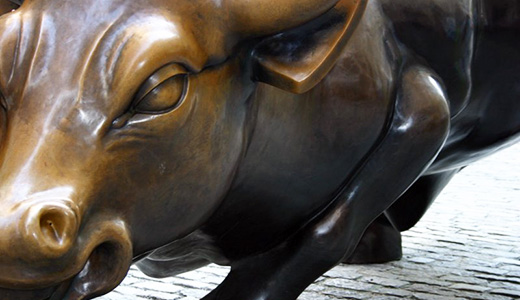
Standard and Poor’s is one of the major private investment rating agencies in the world. Following the collapse of Lehman Brothers in 2008 that precipitated the Lesser Depression, here is how S&P defended its “A'”rating for the firm’s creditworthiness:
“In our view, Lehman had a strong franchise across its core investment banking, trading, and investment management business. It had adequate liquidity relative to reasonably severe and foreseeable temporary stresses …
“We believe the downfall of Lehman reflected escalating fears that led to a loss of confidence – ultimately becoming a real threat to Lehman’s viability in a way that fundamental credit analysis could not have anticipated with greater levels of certainty.”
In other words, “don’t blame us for our colossal error.” The “error” was, of course, primarily a reflection of how compromised the private rating agencies are with respect to the “investment community” they are supposed to be rating. They are so tainted, in fact, that many advocate dismissing their assessments altogether.
The Dodd-Frank financial reform bill was supposed to implement via the SEC (Securities and Exchange Commission) a separation between the rating agencies and those they rate, but, according to economist John Quiggin, this is now dead in the water due to both Republican and Democratic Blue Dogs on the House and Senate banking committees. Why? Because the only practical alternative would be a public ratings agency — too much socialism for them.
Now comes S & P downgrading U.S. securities following the passage of the debt-ceiling deal, despite a $2 trillion math error in its deficit forecasts for the U.S. economy:
“… the fiscal consolidation plan that Congress and the Administration recently agreed to falls short of what, in our view, would be necessary to stabilize the government’s medium-term debt dynamics… the downgrade reflects our view that the effectiveness, stability, and predictability of American policymaking and political institutions have weakened at a time of ongoing fiscal and economic challenges ….”
Predictably, the Republicans are now using the opportunity to blame President Obama for all the nation’s economic woes, even though it was they, and only they, who have held the nation hostage for months demanding draconian cuts in Social Security, health care and education, as well as massive public sector layoffs at all levels, threatening our default on debt obligations, while demanding that the rich and the corporations pay not a single additional dime in revenue.
The blog Atrios had perhaps the best one-line response to the S&P action:
“Apparently we’re supposed to care about what some idiots at some corrupt organization think about anything.”
Paul Krugman, Nobel prize-winning economist and New York Times columnist, said:
“On one hand, there is a case to be made that the madness of the right has made America a fundamentally unsound nation …
On the other hand, it’s hard to think of anyone less qualified to pass judgment on America than the rating agencies.”
Where exactly does S&P, a “bond vigilante” for the “investor class” – essentially a finance capitalist business agent with a big economic machine gun – get off passing political judgments, and on the basis of those judgments, demanding higher interest when not a single payment has been missed? Owning a big part of Congress no doubt explains part of it.
Their statement includes criticism that there were not enough cuts OR revenue increases in the debt deal, or in likely outcomes from the super-committees empowered by the debt deal. But, as Republican hostage-taking demonstrates, until the Republicans are thrown out of office there will be NO taxes on the rich before the 2012 elections are decided. Thus, barring a near-term political upheaval, most of the political burden of the S&P action will fall on the president and the Democrats. Who thinks this is an accident?
What will be the immediate impact of the S&P decision? According to experts:
* First, a lot of U.S. treasury investors still pay attention to ratings agencies, including China – so interest rates on U.S. securities will likely rise, triggering rises across the board on many other securities indexed to U.S. treasury bonds.
* Agency ratings are embedded in global regulations concerning prudent management of investment. If a second major agency were to join S&P in downgrading, large numbers of institutions would be debarred, under existing rules, from investing in Treasury bonds.
A famous Marxist once observed how two people can appear to be superficially talking about the same thing but, on closer inspection, be completely at odds. I agree with S&P that the country is in a gridlocked mess. My solution is: Nationalize the rating agencies, roll back the power of finance capital over the U.S. political process (the real cause of the gridlock), focus on jobs, and demand the rich pay their fair share of the debt. S&P’s solution is: Cut the heart out of the rights (called “entitlements” by those who believe the people are entitled to nothing) of working people, roll back democracy, and make a killing on higher interest on the debt at the same time.
You judge – is it time to hit the streets, or not? Time to organize and move the “vigilantes” to the sidelines of our society, or not?
Photo: The Wall Street bull. Inti CC 2.0

MOST POPULAR TODAY


Zionist organizations leading campaign to stop ceasefire resolutions in D.C. area

High Court essentially bans demonstrations, freedom of assembly in Deep South

Afghanistan’s socialist years: The promising future killed off by U.S. imperialism

Communist Karol Cariola elected president of Chile’s legislature






Comments